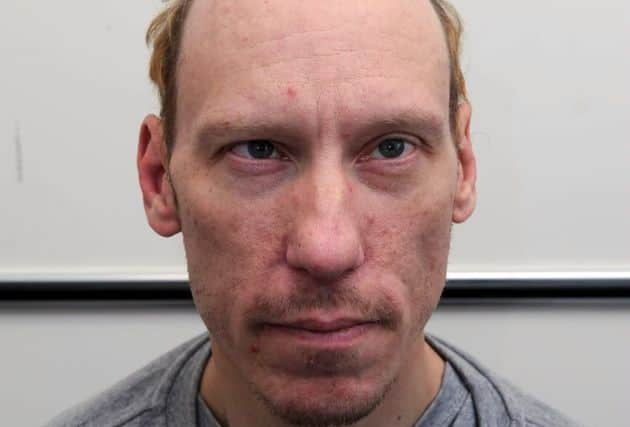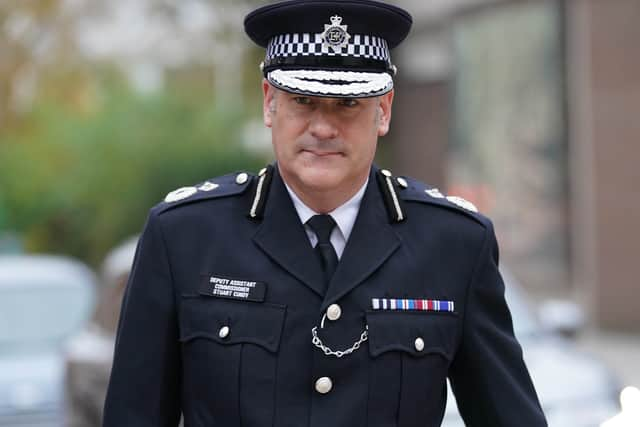Stephen Port: Senior officer’s apology to victims families over failings in serial killer case
This article contains affiliate links. We may earn a small commission on items purchased through this article, but that does not affect our editorial judgement.


One of England’s most senior police officers has apologised to the families of Stephen Port’s victims, as it emerged that a previous report highlighted a “serious failure of policing” in investigating a serial killer among London’s gay community.
Deputy Assistant Commissioner Stuart Cundy said he was “deeply sorry” there were a number of opportunities missed to arrest the drug-rape predator, saying it was “quite astonishing” that some officers did not follow instructions to get evidence in the case.
Advertisement
Hide AdAdvertisement
Hide AdMr Cundy was not in the Metropolitan Police Service (MPS) during Port’s 16-month killing spree in 2014 and 2015 but led the review of the investigations into the deaths of his victims, who were all young gay men in Barking, east London.
Port was caged for life in 2016 after he was convicted of giving his victims lethal doses of the date rape drug GHB.
A second round of inquests into their deaths, which is seeking to establish whether the police made mistakes in their enquiries, has heard a string of apologies from senior figures.


‘It’s fair to say those standards weren’t met’
Advertisement
Hide AdAdvertisement
Hide AdGiving evidence on Friday at inquests examining whether the victims could have been saved if police had acted differently, Mr Cundy said: “Every single one of you absolutely had a right to expect a professional investigation to the standards all of us expected.
“It’s fair to say those standards weren’t met.”
Inquest jurors heard that Mr Cundy’s review highlighted concerns over the quality of the initial investigations and the “professional curiosity” of those involved, as well as over police leadership, direction and support to officers.
He also raised concerns over the interactions between local policing and specialist crime investigators, the understanding of the use of the drug GHB – which Port fatally plied to his victims before dumping their bodies – and a lack of engagement with the LGBT+ community.
Addressing the victims’ loved ones, Mr Cundy said: “I can’t imagine putting myself in your shoes.
Advertisement
Hide AdAdvertisement
Hide Ad“I am deeply sorry – personally and on behalf of the MPS – that we didn’t conduct the initial investigations to the standard you expected and the standard you deserved.”
The jury was told about a report from the Met Police’s LGBT+ Advisory Group which revealed the force was warned in 2007 it lacked knowledge of the gay scene.
Notorious serial killer Colin Ireland tortured and murdered five gay men in London in 1993, and the police investigation “failed to deal adequately with LGBT life and culture”, the inquest heard.
Report said there were failures in recognising ‘common threads’
The report said Scotland Yard had failed to “recognise common threads” in linking the victims as gay, until after the fourth man was killed.
Advertisement
Hide AdAdvertisement
Hide AdThe inquest heard: “The investigation of the serial murders by Colin Ireland was hampered by a lack of knowledge of the gay scene in London and the special culture of S&M/bondage.
“In particular, valuable time was lost before the police managed to recognise two common threads to the crimes.
“These links were established only after the death of the fourth victim.”
Andrew O’Connor QC, representing the coroner, Judge Sarah Munro QC, presented the report during the hearing on Friday, November 19.
Advertisement
Hide AdAdvertisement
Hide AdHe said it was possible to “recognise echoes” of the Port murders in the document.


‘This represents a serious failure in policing’
The inquest heard the report, a Thematic Review of Lesbian, Gay, Bisexual and Transgender related murders, stated: “Police at the time failed to deal adequately with LGBT life and culture.
“The initial investigations of the first murders seemed to us to be more focussed on determining promiscuity and risk taking, and seemed predisposed to interpreting circumstances as sex acts ‘gone wrong’.
“We would argue that given the rarity of such suspicious circumstances the police should have been in a position to link the first two murders, and to have done much more to warn the community at all times after that - particularly following the murder of Andrew Collier.
“This represents a serious failure of policing.”
Advertisement
Hide AdAdvertisement
Hide AdIn the Stephen Port murders, police failed to link the deaths - despite three of the bodies being found in the exact same spot in a Barking churchyard.
The first three deaths were treated as non-suspicious.
Deputy Assistant Commissioner Stuart Cundy told the inquest that since 2015, in Barking and across London, “there has been a significant increase in engagement” with the LGBT+ community, including training, an LGBT+ staff network and continued work with the advisory.
He said: “London is an incredibly diverse and rich capital - there are so many communities, languages and cultures.
“We always need to be doing as much as we possibly can to inform communities, engage communities and work with communities to ultimately make London as safe as we possibly can do.”
The inquest continues.
A message from the editor:
Advertisement
Hide AdAdvertisement
Hide AdThank you for reading. NationalWorld is a new national news brand, produced by a team of journalists, editors, video producers and designers who live and work across the UK. Find out more about who’s who in the team, and our editorial values. We want to start a community among our readers, so please follow us on Facebook, Twitter and Instagram, and keep the conversation going. You can also sign up to our email newsletters and get a curated selection of our best reads to your inbox every day.
